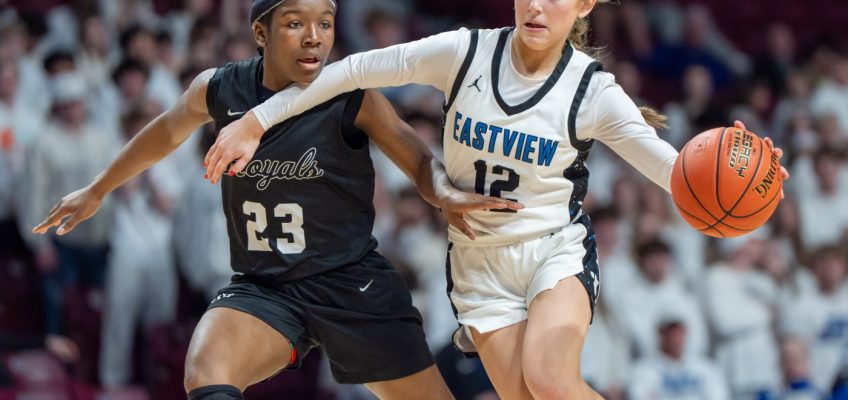Everything is a little tighter come playoff time. Mistakes are more magnified, and goals are more celebrated. And penalty killing can be the difference between a tee time and a trophy. That’s something playoff-bound teams need to prepare to handle.
The Minnesota Wild’s 3-2 overtime loss to the New York Rangers on Thursday still got them an important point as they push for the playoffs, but it may have been some vital prep work for games in — they hope — late April and beyond.
“The last couple of games have been playoff-like games, so, that’s what you see,” said Wild captain Jared Spurgeon, referencing his team’s 2-1 shootout win over Colorado on Tuesday. “Everything tightens up and there’s a lot less space out there. So it’s not a bad thing to be playing this way.”
Defenseman Braden Schneider’s backhander in overtime beat Wild goalie Filip Gustavsson, snapping New York’s four-game winless streak, after the Rangers held 1-0 and 2-1 leads in the third period only to see Minnesota twice forge a tie on goals by Marcus Johansson and Freddie Gaudreau.
Igor Shesterkin had 26 saves for the Rangers, who were making their only visit to St. Paul this season. Gustavsson had 29 saves in the loss. It goes in the books as a defeat, but for a Wild team that had been struggling to kill penalties and score goals, there were myriad positive signs. For example, Minnesota killed a trio of Rangers power plays in the game and the penalty kill is 5-for-5 in the past two games. Just don’t ask coach John Hynes what’s working with a Wild player in the penalty box. He doesn’t want to jinx anything.
“Not talking about the penalty kill. Let’s just keep it rolling,” Hynes said with a smile. “I love the question but we’re just going to let it ride.”
Each team had a fruitless power play in the scoreless first period, with the goalies stealing the show.
It took nearly seven minutes in the second period for New York to break the scoreless deadlock, when Vincent Trocheck fanned on a shot, but regathered the puck and zipped a rising missile into the upper corner. It snapped a drought of 11 consecutive games without a goal for Trocheck, who centered the Rangers’ top line on Thursday.
The Wild lost defenseman Jon Merrill early in the second period after a high-speed collision with a Rangers forward. Merrill headed down the tunnel and did not return until the start of the third period, forcing Minnesota to play more than half of the middle frame with just five defensemen.
Minnesota’s penalty kill, which has been among the league’s worst for much of the season, got a workout late in the second period, killing off a Vinnie Hinostroza slashing penalty only to have Johansson head to the box for slashing a short time later. The Wild killed that one off too, then forged a tie shortly after a Rangers penalty expired.
After a set-up pass from Gustav Nyquist, Johansson used Schneider as a screen, then fired a rising wrist shot that found the upper corner behind Shesterkin. The assist was Nyquist’s first point for Minnesota since coming over in a March 1 trade with Nashville
The deadlock was temporary at best, as Jonny Brodzinski pulled off a similar play less than three minutes later, using a Wild defender to obstruct Gustavsson’s view, then putting a shot just beyond the goalie’s glove. It was the seventh goal of the season for Brodzinski, who played prep hockey for Blaine and was a collegiate standout at St. Cloud State. He admitted later that it had been a long, long time since his last goal at Xcel Energy Center.
“My senior year of high school,” said Brodzinski, who had a good contingent of family on hand Thursday. “My dad sent me a clip the other day, they were just pre-high school games, they were showing a bunch of old highlights and I was in one of them. It’s like a half-ice windmill all the way down. Just something crazy from the high school. But yeah, it’s a blast.”
On the next shift, a Zac Jones high stick caught Johansson in the face, drawing a double minor penalty, and Gaudreau made a deft move at the top of the crease for a power play goal to pull the Wild even again.
“I give our guys a lot of credit. I think we’re playing extremely hard and strong attention to detail, playing the way you really need to win this time of year there. They’re highly competitive games. Everyone’s kind of jockeying for position. And it’s the most intense time of year, you know, probably other than the playoffs,” Hynes said. “I think our guys have anted up for a while here now. So it was good. I’m glad. Two come-from-behind goals in the third period. Obviously you’d like to have two points, but at this time of year, every point matters.”
Busy schedule stretch has Wild on the job every other night
Stifling Wild defense producing wins while offense is quiet
Shootout practice helps Wild get crucial extra point from Colorado
Wild players admit a gut feeling when playoff time is approaching
For Wild’s still-struggling penalty kill, close is not nearly enough
Thursday was Minnesota’s annual Pride Night celebration, with proceeds from the team’s in-game raffle going to benefit Twin Cities Pride. Merrill and his wife Jessica have been outspoken advocates for the LGBTQ+ community, and in 2024 were named Allies of the Year by Twin Cities Pride. Minnesota Lynx WNBA coach Cheryl Reeve, along with her wife Carley Knox and their son Oliver, led the traditional “Let’s Play Hockey” cheer before the opening faceoff.
On Saturday, the Wild hosts the last of four regular season games with the St. Louis Blues, who will come to St. Paul in desperate need of points if they are to get back in a playoff position. Minnesota has won the first three meetings with St. Louis this season, including a 4-1 victory in the Blues’ home rink on Oct. 15 where Gustavsson scored the clinching empty net goal with a shot from the far end of the rink.



